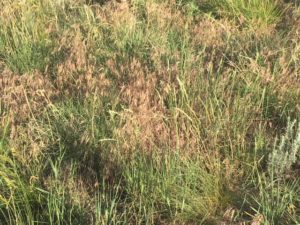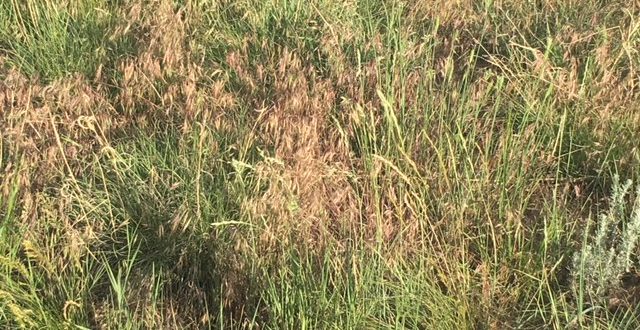Cheatgrass and Wildfires
Cheatgrass is one of the most common reasons for wildfire spreading. It’s getting to the time of year where you’re likely thinking about the wildfires in Colorado. You’ll want to understand more about the causes and the dangerous items in your garden. 
Native in Eurasia, cheatgrass is often called downy brome because of its look and fear. It’s an invasive and aggressive weed that is common around the Rocky Mountains and along the eastern front. Usually on disturbed sites and along roadsides, the weed is now on the noxious weed C list in Colorado.
One of the big problems is lack of biological predators, so it quickly takes over land and will fight and win for all nutrients, including water and sun.
It’s extremely common in areas that have been disturbed by flooding, fire, and even construction. However, it can also become established in undisturbed areas. Once it is established, it’s extremely hard to get rid of.
Wildfires Because of Cheatgrass
It’s a tall weed that turns brown reddish and dies in the early summer. You’ll be left with thick, dry vegetation that is the perfect fuel for fire. And because it lies across flat terrain in the majority of cases, it’s in the perfect place to spread fire quickly. Flames can reach 8-feet in height and spread as quickly as 20 mph, making it extremely difficult to stop the fire.
It’s essential that cheatgrass is removed from land as soon as possible. It can be removed by hand. You should also avoid dropping any flammable materials, including cigarette butts, anywhere near the weed, as it will catch fire almost immediately.
Remove the weed before it has time to seed. You’ll then need to remove the soil and rotate it to a three-inch depth before planting desirable plants. Water thoroughly, as the cheatgrass will also dry out the soil!
Cheatgrass control should be one of your fire mitigation measures. It will take several years to remove cheatgrass but it is worth the wait for native vegetation to come back.
For any questions on wildfire mitigation plans, contact Colorado Mastication.
